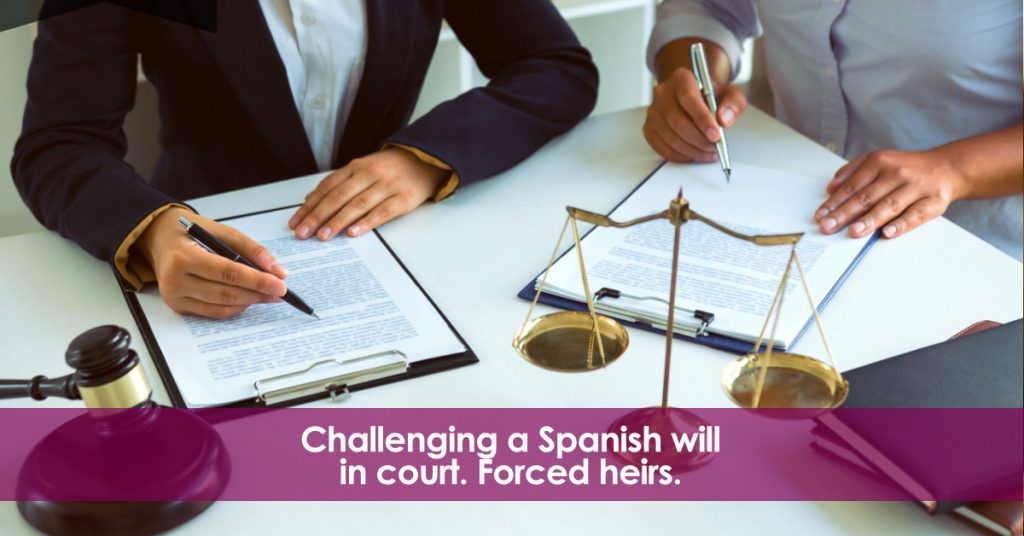At the beginning of last year, we wrote an article about a successful court claim in our law firm. The case (challenging a Spanish will in court) revolved around two fundamental issues. The right to a reserved share of the inheritance, and the application of Spanish law to the inheritance of a foreign person (non-Spanish national). Our firm represented the daughters of the deceased. The Court of First Instance of Villajoyosa ruled in favour of our clients. The opposing party challenged the judgement before the Provincial Court of Alicante, which has once again upheld our client’s case. We analyse it below.
The specific case.
A Scottish national with three daughters passed away in 2014. In the last valid will granted in Spain, the deceased named her husband as her sole and universal heir. The daughters of the deceased understood that their legitimate rights were being damaged since, according to Spanish law; the children are forced heirs with the right to 2/3 of the inheritance. Except in very specific cases of disinheritance, unworthiness to inherit, manipulation of the testator, etc.
Application of Spanish law to the inheritance of a foreign person. Renvoi.
One of the most important aspects to determine which law is applicable to an inheritance is to know the date of death of the deceased:
– If the death occurred after August 17th, 2015, European Regulation 650/2012 will apply.
– However, if the death occurred before that date, the rules provided for in the Spanish Civil Code (Articles 9.8 and 12.2) will be ones that govern the inheritance.
As a general rule, the Spanish Civil Code understands that the law of the nationality of the deceased applies. In this case, that would be Scottish law. However, in certain cases (e.g. when the deceased has his domicile in Spain, or has immovable property in Spain, etc.) the “renvoi” that the law of the deceased (Scots law) makes to Spanish law is allowed. In this case, Scottish law precisely established that. For real estate located in Spain, Spanish law must apply. For this reason, we advised our clients that challenging the Spanish will in court was the best course of action. The Court of First Instance accepted the reasoning set out in our claim and ruled in favour of our clients.
Appeal: Confirmation of the application of Spanish law to the inheritance.
The defendant appealed against the first instance ruling. The 6th section of the Provincial Court of Alicante has confirmed the application of Spanish law to the inheritance, and the legitimated rights of our clients. Therefore, their rights as forced heirs in their mother’s inheritance have been confirmed for the second time:
“Contrary to what the defendant maintains, the judgment of the First Chamber of the Supreme Court number 520/2019, of 8 October, whose criterion is followed for the resolution of the lawsuit, does take into account the existence of movable assets in the estate, as it indicates in section C of the second legal basis that the last domicile of the deceased was in Spain, as stated in the will, so that the rule of conflict refers for the succession of movable assets to Spanish law.”
Conclusions.
At White-Baos Lawyers we are experts in Inheritance Law and challenging a Spanish Will in court. Whether you understand that your rights as forced heir have not been respected. Or if you wish to make a will and want to be sure that it cannot be challenged, do not hesitate to contact us. We will study your case and offer expert legal advice on the matter.
The information provided in this article is not intended to be legal advice, but merely conveys information relating to legal issues.
Carlos Baos (Lawyer)
White & Baos.
Tel: +34 966 426 185
E-mail: info@white-baos.com
White & Baos 2023 – All Rights Reserved.
